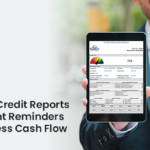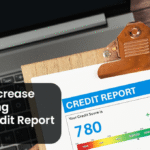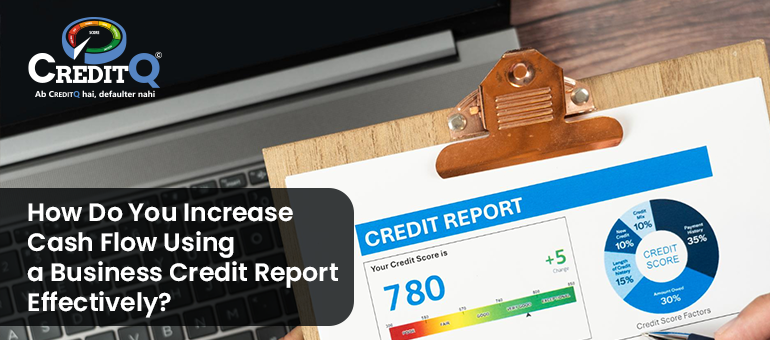Your business credit report says a lot about your financial hygiene. It tells about your outlook towards the business in terms of financial stability, market value, rapport with lenders, etc. Besides, it includes information regarding your company’s structure, financial performance, and owner’s details.
Similarly, a business credit score is a numerical assessment of your company’s creditworthiness and how you deal with finance in your company. It may include your payment habits, how you pay debts, and how you utilize funds.
You may already know that your lenders, suppliers, customers, and investors can check your business credit score and use it to determine if they wish to make a business deal with your company. If you own a startup, you must maintain an impactful credit report for business.
Many credit reporting agencies like CreditQ, provide credit information reports. These bureaus gather information from different sources to generate business credit reports. However, it depends on the bureau to obtain information from sources, such as bank vendors and credit issuers.
What’s inside your business credit report?
Every credit reporting bureau organized your credit report for business differently. However, the information remains the same at large. Let us understand the key factors that comprise a business credit report.
Company Information
Your credit report for business contains your company’s profile, such as your NAICS and SIC numbers. These numbers reflect your company’s industry and what’s your business all about. While checking your credit report through CreditQ, it uses a unique credit information reporting diagram to analyze various factors related to your business, including risk assessment and your financial rapport in the market. Equifax has its own Equifax ID for your business, while Experian calls it the Business Identification Number (BIN).
Company’s Payment History
Your business credit report includes your payment history, i.e., your financial habits in terms of paying your dues and debts, your late payment dates, and utilization of funds. Remember that the lenders and suppliers report the number of days it takes your business to pay them their dues. So, it’s wise to make timely payments to ensure you score well on the credit report.
Business Details
Apart from factors like financial performance report and risk assessment, your credit report also contains your business information, such as the company’s branches and facilities provided, and your addresses to check if you are a separate business entity rather than a home-managed business. It also includes your company’s financial information like financial statements and owner’s details.
Risk Assessment
In the previous point, we discussed the company’s information that is a part of your business credit report, including risk assessment. Here, you should understand that each bureau has its way of assessing your company’s risk. It undertakes various factors like your credit utilization ratio, your vendor payment details, your business debts, etc. While assessing the risk factors, credit reporting bureaus can analyze your risk structure and your financial health.
Public Records
Your credit report for business may include publicly available information about your business, such as liens, judgments, and bankruptcy details. The report also includes the details about the owners. When you analyze your business credit report, you can make out the list of the business defaulters who trouble you with payment issues.
You can report them on the CreditQ platform to get help in payment settlement. This way, you keep your business away from fraudulent activities. Besides, you can check your credit information report, including your business credit score on the platform. It would give you a brief idea about your financial strength and shortcomings.
You can improve your business credit score to attract investors and lenders who would be willing to join hands with you considering your impactful credit report.









